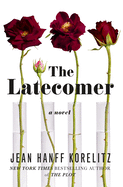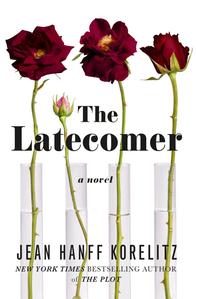
 Jean Hanff Korelitz's decision to follow her wickedly clever novel The Plot with The Latecomer is a little like a band following a brilliant pop song with a beautiful sound collage. Whereas The Plot is about a fictional story so compelling that it has life-altering consequences for the protagonist, The Latecomer is lacking in anything resembling a traditional plot with measurable stakes, and yet it has multitudes to recommend it just the same. By dint of her mastery of crafting a scene, Korelitz (You Should Have Known) manages to convince readers that whether characters find their peace matters as much as whether a character is, say, found guilty of plagiarism.
Jean Hanff Korelitz's decision to follow her wickedly clever novel The Plot with The Latecomer is a little like a band following a brilliant pop song with a beautiful sound collage. Whereas The Plot is about a fictional story so compelling that it has life-altering consequences for the protagonist, The Latecomer is lacking in anything resembling a traditional plot with measurable stakes, and yet it has multitudes to recommend it just the same. By dint of her mastery of crafting a scene, Korelitz (You Should Have Known) manages to convince readers that whether characters find their peace matters as much as whether a character is, say, found guilty of plagiarism.
The Latecomer is narrated by Phoebe Oppenheimer, the younger sibling of the Oppenheimer triplets, who were conceived through in vitro fertilization in 1981. (Phoebe's "absurdly late appearance" nearly two decades later "screamed family crisis," as one of the triplets puts it, and fairly.) As if traumatized by their forced togetherness in utero, the triplets have--to their mother's enduring despair--spent their lives trying to get away from one another. Harrison railed against the liberalism of his secular Jewish upbringing in Brooklyn Heights and, rather than attend Cornell, his father's alma mater, opted for a conservative two-year college before moving to Harvard. Conversely, Sally and Lewyn went to Cornell (a family gift of paintings greased the palms of the college's admissions department), although so determined was Sally not to acknowledge her kinship with Lewyn that she didn't tell her roommate, who was dating him, that he was her brother.
Why all this intra-fraternal rage? That's what Phoebe, looking back and looking on, is trying to figure out, ultimately intuiting what readers already know from the novel's early pages: the "fractured heart of the Oppenheimers" stems from the cascading effects of a tragedy inadequately managed.
The Latecomer can read like a collection of funny stories: Lewyn brings his Mormon roommate to a campus seder; Sally makes the mortifying mistake of arriving at her roommate's home unannounced over spring break; Harrison speaks in rabid support of conservative orthodoxy at a summer retreat in Virginia. These episodes are silo-like: they elucidate character, setting up dazzling dialogue-rich scenes that touch on politics, religion, race, privilege and sexuality, but they don't recalibrate the novel's path. That's okay: the occasional telegraphing from Phoebe can feel like a clarifying gut punch to happily unsuspecting readers. --Nell Beram, author and freelance writer
Shelf Talker: This entertainingly sprawling multigenerational saga revolves around a family of unhappy New Yorkers whose youngest member is determined to understand her kin.

